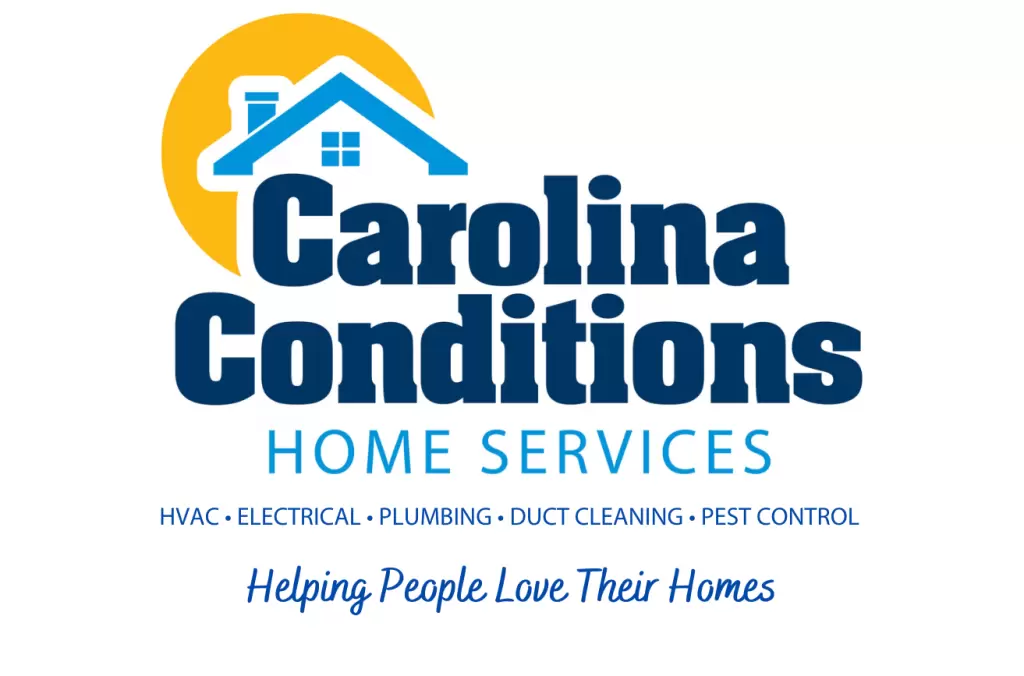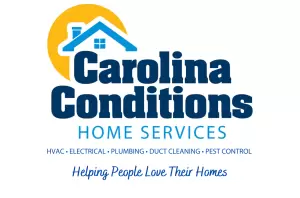Heating Services
Furnace Repair, Installation & Maintenance near Lexington & Columbia, SC
When the weather turns cold outside, your heating system should jump into action, providing you and your family with warm, cozy heat right when you need it. Here at Carolina Conditions, we are well trained and experienced in all things heat, so that whatever your heating & furnace service needs are, we can deliver.
We work with all types of heating systems, including gas furnaces, electric furnaces, traditional heat pumps and geothermal heat pumps. For full furnace services near Columbia and HVAC service in Lexington, SC, turn to your local professionals for exceptional service, every time!
Our Heating & Furnace Service Includes:
Furnace & Heating Installation & Replacements
Carolina Conditions Savings Club
Comprehensive Furnace Work
Our certified technicians can handle any type of heating system work, from a small fix to a full replacement. Because we do it all, we look at your system from a big picture perspective. You can trust us for the best advice on whether to repair or replace your system, to identify any potential issues during a routine maintenance service or to provide honest service for your broken furnace.
Variable Speed Heating Technology
A variable speed furnace motor uses two-thirds less electricity than a standard single-speed motor. With the energy savings you enjoy each month, your investment in a Lennox variable speed furnace will pay off quickly. We invite you to watch the video below to learn more about variable speed technology.

Ready To Help
We know that stuff never pops up at a convenient time. That’s why we promise fast, effective service so you can get back to comfort and warmth.
Just give us a call at 803-233-7172 and we will be there! Thanks for your interest in Carolina Conditions - we look forward to working with you on your home’s heating unit concerns!
Heating FAQs
Furnaces are rated by the Annual Fuel Utilization Efficiency (AFUE) ratio, which is the percent of heat produced for every dollar of fuel consumed.
Like the miles-per-gallon rating on your automobile, the higher the AFUE rating, the lower your fuel costs. All furnaces manufactured today must meet at least 78% AFUE. If your furnace is 10 – 15 years old, it very well may fall below the current furnace minimum and waste energy.
This doesn't mean that you should only select a furnace based on its AFUE rating. The efficiency rating is just one factor to consider when looking for a new furnace.
Furnaces use electricity to run fans and motors. The amount of electricity used varies greatly depending on the type of furnace. Be sure to check electricity usage prior to making a purchase decision. view pdf
The term "variable speed" refers to the furnace's indoor blower motor, which moves at different speeds to precisely control the flow of heated and cooled air throughout your home. Better airflow control has several benefits:
Electrical efficiency Variable speed motors can actually save you money on your energy bills, as they consume less electricity than standard motors.
Cooling efficiency Variable speed technology also means you will gain heating efficiency or AFUE.
Zoning Variable speed motors are excellent for zoning, which allows you to customize your comfort in different areas of your home and control your energy bills.
Air quality A variable speed motor can also help clean the air in your home. When the fan is in constant operation (indicated by the "Fan" setting on your thermostat), the motor will continue to slowly circulate air, allowing filters to capture more contaminants.
Humidity control A variable speed motor combined with a ComfortSense 7000 programmable thermostat Home Comfort Control allows you to control the amount of humidity in your home for improved indoor air quality and comfort. view pdf
Furnace technology has advanced significantly in recent years, raising concerns over chimney use. As a result of changing technology, many existing masonry chimneys aren't able to meet the specific demands of new furnaces.
There are several reasons for this furnace-chimney incompatibility. First, the size of the chimney can be an issue. Modern, higher-efficiency furnaces transfer more heat into your home and less heat up the chimney than older, less-efficient units. While this means more efficiency for your energy dollar, it also means that the existing chimney might be too large for the new furnace. The result could be improper ventilation of flue products, which can cause condensation problems inside the chimney.
Other considerations include chimney height and location, proper lining and condition of the chimney. Building codes must also be kept in mind to ensure proper draft in the chimney for adequate ventilation.
For the best advice on how to configure your new furnace, contact Carolina Conditions today. view pdf
If your heating system is blowing cold air, several issues could be at play. First, check the thermostat settings—ensure it’s on “AUTO” rather than “ON,” as “ON” keeps the fan running continuously, even without heat. A dirty air filter can restrict airflow, causing the system to overheat and shut down the burners. Other potential causes include a malfunctioning pilot light or ignition system in gas heaters. Regular maintenance can help prevent these problems, but if the issue persists, consult an HVAC professional.

